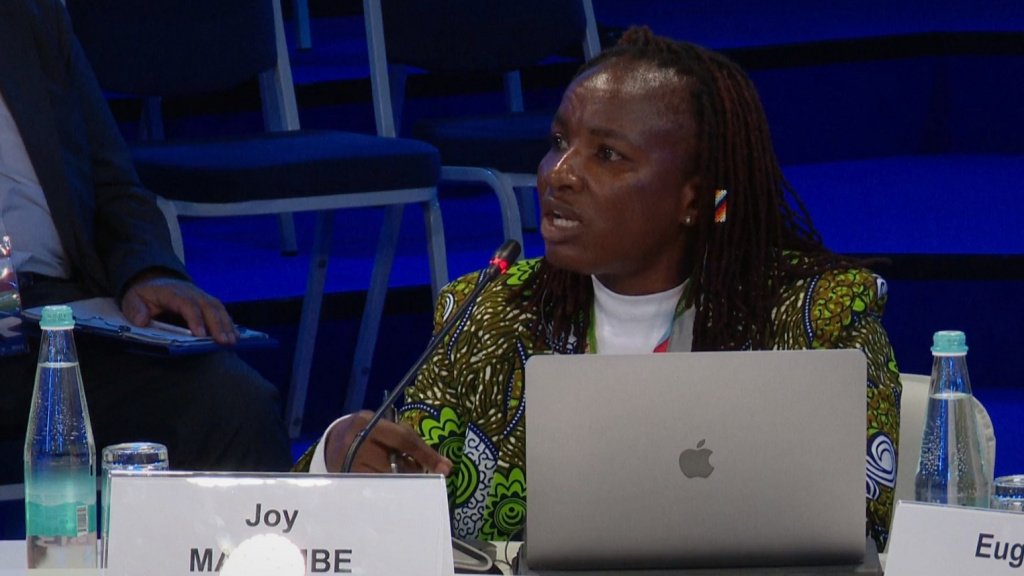
Participants discussed the issues of modernisation and improvement of infrastructure, introduction of innovative approaches.
On Thursday, 27 July, on the margins of the second Russia-Africa Economic and Humanitarian Forum in St. Petersburg, a panel session entitled “Infrastructural Development, Innovations and Comfortable Urban Environment” was held. Janna Tolstikova, CEO of TV BRICS International Media Network, moderated the discussion.

The session participants discussed the issues of modernisation and improvement of infrastructure, introduction of innovative approaches and technologies. They also considered measures to create a favourable environment for business and attract foreign investors, contributing to the sustainable development of cities in both regions.
Janna Tolstikova, CEO of TV BRICS, spoke about the role of the media network in popularising innovations to create a comfortable urban environment.
“Today, TV BRICS has more than 50 media partners in BRICS, Africa, Eurasia and Latin America. We work with our partners on the principle of information exchange. Thanks to our cooperation with media outlets in Africa, we receive high-quality journalistic information about the state of modern life in these countries. We translate this information into different languages – Russian, Portuguese and Chinese, and place materials in the national media of the “five” countries. The same thing works in reverse. This is how we tell about modern Russia on the media platforms of African countries.”
“Of course, infrastructural development, innovation and comfortable environment are the topics that we as an international information hub pay special attention, by facilitating the exchange of views and experiences on sustainable development of Russian and African cities,” she added.
Janna Tolstikova, CEO of TV BRICS
Janna Tolstikova said that TV BRICS cooperates with the Zimbabwean media, which focuses, among other things, on the issues of national housing construction. Zimbabwe’s new housing policy was adopted in 2021, with a focus on providing comfortable, affordable and quality housing for different segments of the population, as well as developing inclusive cities and human settlements and creating smart cities, which fully correlates with the African Union’s 2063 Agenda and the UN Sustainable Development Goals, which Zimbabwe also supports.

“We are developing smart cities, we have advanced technology and we want to provide people with not just housing but multifunctional housing. We want people to live there comfortably, we want them to be able to work, we want the housing to be in an accessible location. We have a system like the Russian Federation that helps people to improve their housing conditions,” said Joy Makumbe, permanent secretary in the Ministry of National Housing of the Republic of Zimbabwe.
Deputy Minister of Construction, Housing and Utilities of the Russian Federation Nikita Stasishin explained the current state of the construction sector in Russia and what experience the Russian Federation is ready to share with Africa: “On the instructions of the President, an infrastructure menu has been launched. This is a huge amount of money that goes to modernise engineering, transport, utilities and social infrastructure. Our country’s team in terms of urbanisation of the building block, comfortable urban environment, smart city and transformation of the housing and utilities sector is working towards one goal – to change the quality of life of our citizens. But in order to change in practice, we must first do a huge amount of work – normative, scientific, and take advantage of the world’s best practices in order to make standards.
“At the same time, we have a huge scientific base with technical solutions for the development of agglomeration of cities with millions of inhabitants, as well as single-industry towns and small cities. This is something we could share with African countries,” he noted.
Yuri Grishan, the Mayor of Magadan, told about the role of public-private partnership in the development of the city infrastructure: “Thanks to “DOM.RF” funding, we have conducted a lot of research on civil society, it helped us attract a lot of investors to Magadan. In addition to the fact that we receive state funding from various sources and banking structures, we have 14 concession agreements being implemented on the territory of the city of Magadan. Among them are infrastructure projects, schools, kindergartens, sports complexes and so on. This has become possible due to the fact that investors understand what will happen on this territory and that the money they invest, they invest with benefit. We want to create the same conditions as in tourist cities in Russia.”
“In Tanzania, the same as in Magadan, the gold is mined and for many years we have been supplying there the washing equipment, because the method of gold mining is the same. We are ready to renew the contacts that we had in the field of construction as well,” added the mayor of the Magadan city.
Tafadzwa Muguti, Commissioner of the Presidential Administration of the Republic of Zimbabwe for the Development of Harare Province, noted the peculiarities of the province in terms of transport infrastructure development and spoke about the prospects for cooperation with Russia in this area: “One of the opportunities to improve transport infrastructure is to intensify partnership relations with the Russian Federation. Thanks to cooperation with Russian cities we could create new master plans for the development of municipalities”.
The panel discussion gave the experts an opportunity to share best practices, highlight modern requirements for infrastructure development and consider innovative approaches that can make cities more convenient and environmentally sustainable.
The second Russia-Africa Forum is taking place in St. Petersburg on 27-28 July.
Photo: screenshot of the broadcast of the second Russia-Africa Economic and Humanitarian Forum.
